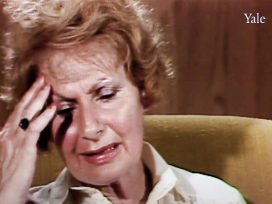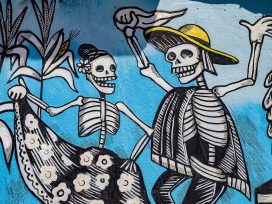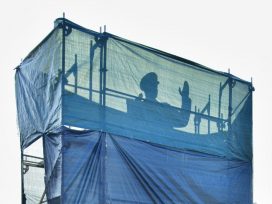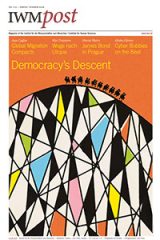

In collaboration with
Institute for Human Sciences
The Institute for Human Sciences / Institut für die Wissenschaften vom Menschen (IWM) is an independent institute for advanced study in the humanities and social sciences. Since its foundation in 1982, it has hosted more than 1500 scholars, journalists and translators from all over the world. Many of the Institute’s Permanent and Visiting Fellows are regular contributors to Eurozine or its focal points The World in Pieces and Ukraine in European Dialogue (see below).
Website: www.iwm.at
X (formerly known as Twitter): https://x.com/iwm_vienna
Youtube: https://www.youtube.com/channel/UCIwFQ_iRX8w8D0NKJo41Ihw

Articles

How can intense description of what is irreducibly particular help us to extract elements that are universal? Parallels between the child separations at the US–Mexico border and the experiences of Holocaust survivors prompt historian Marci Shore to ask what we can and cannot understand by thinking in comparisons with the past.

Beyond organized crime
Armed violence and drug production in Mexico
The distinctions between exploiter and exploited are ill-defined, keeping small-scale poppy producers locked in criminality in northern Mexico. The military, drug trade intermediaries and an inaccessible legal framework all conspire to marginalize those who experience violence on a daily basis.

The removal in April of the monument to Red Army general Ivan Konev in Prague and the rehabilitation of the collaborationist Russian Liberation Army is typical of the revisionist tendency in central eastern European history politics since 1989. Narratives of heroism and victimhood, where the villains were always Nazis or communists, are easily exploited by nationalist extremists.

Instead of looking at populists’ lies, it’s worth taking a look at the few truths they rely on: voters do recognize that liberal democracies have not worked in their favour. Can we ever shake off the demagogues and assimilate the genuine, if disruptive, energies of populism into a responsive democratic process? Relying on mere chance could be a way to renew representation.
Focal points

Inspired by a lecture that Clifford Geertz delivered in 1995 at the Institute for Human Sciences in Vienna, this focal point engages with ‘deep diversity’, ‘a sense of dispersion, of particularity, of complexity and of uncenteredness’ rather than unified world order. It follows the launch of a research programme of the same name at the institute in January 2023.

Post-revolutionary Ukrainian society displays a unique mix of hope, enthusiasm, social creativity, collective trauma of war, radicalism and disillusionment. With the Maidan becoming history, the focal point ‘Ukraine in European Dialogue’ explores the new challenges facing the young democracy, its place in Europe, and the lessons it might offer for the future of the European project.
Projects and publications

